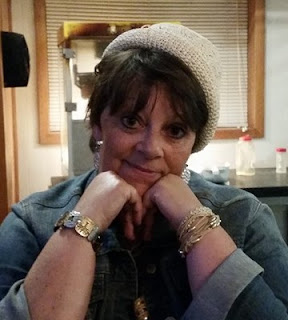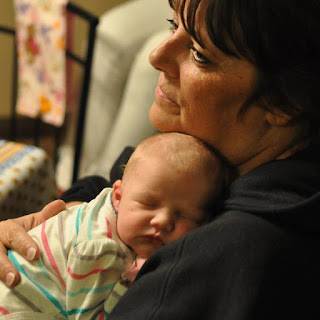Remembering
Paul Wellstone’s legacy. Again.
Ten years ago, I thought I’d write one last tribute to Paul Wellstone, who died in a plane crash en route to Eveleth on Oct. 25, 2002. I titled it: “One last tear for Paul Wellstone.”
But 20 years after that tragic day in northern
Minnesota, it seems appropriate once more to think about him, his legacy, and
how things might have been different had he lived. He was one of a kind.
Considered by many the most liberal U.S.
Senator of his day, Wellstone still became beloved both here and in Washington,
D.C. He won the hearts and minds of voters and colleagues because of his values
and his convictions. Despite his liberal ways, people liked and trusted him.
************
“I told
Minnesotans I was for universal health coverage – Medicare for all, living wage
jobs, the right of workers to organize and bargain collectively, more
investment in children and education, more environmental protection, and
campaign finance reform…I tried to never equivocate on the issues. I was a
liberal and proud of it!” – Wellstone
************
Oddly, my first glimpse of this short, fiery progressive activist was in 1982. No DFLer had stepped up to run against Arne Carlson, the popular Republican state auditor who would later become governor. Out of nowhere, Wellstone jumps onto a convention floor and electrifies delegates, first at the district level and then at the state convention in Duluth.
That same year, former Gov. and U.S. Sen. Mark Dayton lost to Republican Sen. David Durenburger before going on to more successful bids. Ten years ago at a Wellstone remembrance at Macalester College in St. Paul, Dayton recalled the rise of the Carleton College professor.
“Paul spoke (and) the convention went wild,” as reported by former MinnPost reporter Doug Grow.“The fact that Paul’s issues had nothing to do with the job of state auditor meant nothing to DFLers who had just heard the most electrifying speech of their lives.”
It was. Wellstone lost to Carlson in ‘82 but went on to give more electrifying speeches, and despite vast political differences, rural Minnesotans grew to like and trust his passion and support. Farm country found a friend and fierce advocate.
Wellstone went on to one of the most stunning upsets in U.S. political history, narrowly defeating folksy Sen. Rudy Boschwitz, the lone incumbent United States senator to lose in the 1990 election. Six years later, Wellstone’s populist image had grown as he won a Boschwitz rematch by 9 percentage points.
************
“The
health and vitality of rural communities is based not on the number of acres
farmed or the number of animals owned but rather on the number of family
farmers who live in the community, buy in the community, and contribute and
care about the community.” – Wellstone.
************.
What earlier had won over many rural Minnesota voters was Wellstone’s work during the farm crisis of the 1980s, long before his emergence as U.S. senator. His fire burned for small, family farmers and his strong support for a southwestern Minnesota protest movement, Groundswell, was not forgotten by those he fought for. His electrifying speeches didn’t hurt.
While Wellstone never forgot to fight for Minnesota farmers, his Senate legacy was far broader and his passions were many, particularly on the environment, education, health care reform, issues of poverty and campaign finance reform. But it is in the areas of mental health and domestic abuse where the Wellstone legacy – both of Paul and his wife Sheila, who also died in the plane crash -- shined.
Wellstone’s legislation calling for insurance companies to treat mental health coverage similar to physical ailments was championed in the U.S. House by former Minnesotan Republican Rep. Jim Ramstad and Democratic Rep. Patrick Kennedy of Rhode Island, both recovering alcoholics, along with then Sens. Ted Kennedy (D-Massachusetts) and Pete Domenici (R-New Mexico).
Wellstone was also one of only 11 U.S.
senators to cast votes against authorizing the use of force in the Persian Gulf
War of 1991 and the Iraq War of 2002.
************
“There
is one lesson I have learned that I hold above all others from my experience as
a father, teacher, community organizer, and U.S. senator. We should never
separate the lives we live from the words we speak. To me, the most important goal
is to live a life with the values I hold dear and to act on what I believe in.”
– Wellstone in his introduction to his autobiography, “The Conscience of a
Liberal: Reclaiming the Compassionate Agenda
************
Will this be my last tribute to Wellstone? Maybe. But heck, I’d previously found a “What would Wellstone do?” bumper sticker in my old political files and stuck it on the back of my 2006 Toyota Highlander. Wellstone, who drove an old green bus during his campaigning, might appreciate it, as my hybrid just topped 280,000 miles.
Wellstone’s ways, despite his liberal views, was to work in a bipartisan manner. He teamed up with Durenberger on major health care reform.
Today, both Durenberger and Carlson have left the Republican party they once knew. One of my most vivid memories during Wellstone’s memorial in 2002 at Williams Arena was Durenberger’s handshake as I manned one entrance. As co-executive director of the Minnesota Alliance for Progressive Action (MAPA), our staff was one of the organizations to assist at Wellstone’s memorial.
I had interviewed Durenberger a couple times in my community journalism days and he remembered. And while his work on health care reform with Wellstone caused ire among Republican colleagues, Durenberger never quit calling Paul a close friend.
Where has that civility gone in today’s polarized political world? Have we moved so far from a common good that we don’t even know what it might be?That plane crash near Eveleth 20 years ago rattled the Wellstone world and his supporters. Wife Sheila, daughter Marcia Wellstone Magnuson, campaign staffers Tom Lapic, Mary McEvoy and Will McLaughlin, and pilots Richard Conry and Michael Guess also died.
Today, it might seem like Wellstone’s vision of a compassionate agenda has also died. But Paul wouldn’t have wanted any of us to quit fighting. So the tears have stopped but the memories will never fade.
And the work should never end.
Dana Melius is a semi-retired community journalist, freelance writer and nonprofit director. He lives in St. Peter.



















